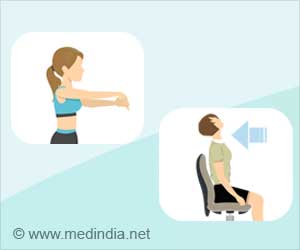- Depression cases are rising among today’s youngsters
- Virtual reality (VR) coupled with psychotherapy can help treat young people suffering from symptoms of depression
Read More..
A clinical trial coordinated by Montesano with the professor from the Faculty of Psychology of the UB and the Institute of Neurosciences of the UB (UBNeuro) Guillem Feixas will examine new tools to try to improve the psychological treatment these people receive.
The study will examine the usefulness of personal construct therapy in young people between 18 and 29 years old with mild or moderate symptoms of depression. It will also explore whether it is more effective when implemented in conjunction with a new and pioneering virtual reality application. The trial is being funded by the Spanish Ministry of Science and Innovation.
Fighting Depression with Psychotherapy and Virtual Reality
“Personal construct therapy focuses above all on how people construct their reality, and the meaning they give to things that happen to them and to the people around them”, said Montesano. Its results in recent decades have been positive, but “this is the first trial which has been carried out applying it specifically to young people with depressive symptoms”, he added. Its efficacy will be compared with that of cognitive behavioral therapy, which is considered the benchmark therapy, and is based primarily on observable behaviors.Virtual reality applications have also been tried in exposure therapies to treat some types of phobias, but “this is the first time that they are being researched in the treatment of depression and in psychotherapy in general”, confirmed Montesano. The app, called EYME, is a pioneering development by the University of Barcelona. The system uses a prior interview to transform the meanings and important people in the individual's identity into a 3D space in the form of spheres and words.
One of the keys to psychological therapy is the patient's involvement. Various types of psychotherapy have presented equivalent efficacy rates in overall terms, but approximately 35% of patients drop out of treatment before it is considered complete. If the clinical trial turns out to be positive, it would help broaden the range of options available. “Being able to personalize treatment based on personal preference is crucial,” said Montesano.
. “Interventions and research in psychotherapy have traditionally focused on the most severe forms, which has partially led to young people being under-represented,” acknowledged Montesano.
“Today we know that the sooner the problem is addressed, the better the long-term results, so the trend needs to be reversed. This is already happening in society, and it’s something that must also happen in research,” he concluded.
Source-Eurekalert















